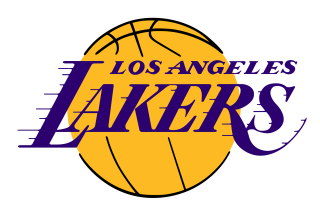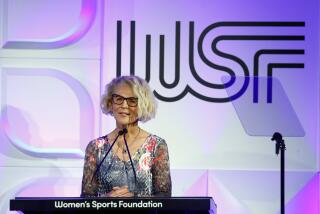Sue Falsone: Major League Baseball’s 1st female head athletic trainer
- Share via
Sue Falsone is the new head athletic trainer for the Los Angeles Dodgers, making her the first woman to hold that job in Major League Baseball--or major pro sports, for that matter.
It’s a landmark decision, despite the fact that women have been working alongside high school, collegiate and even professional athletes as athletic trainers for years. However, cracking major professional sports has been difficult, with some coaches, managers and the occasional player resisting adding women to the ranks.
Ariko Iso had been an assistant athletic trainer with the Pittsburgh Steelers--the first woman to crack the NFL--until June when she left to become the head football athletic trainer for Oregon State University, her alma mater. The Associated Press reported that when the Dodgers hired her in 2007 she was the first female physical therapist in the major leagues. Falsone is also vice president, performance physical therapy and team sports at Athletes’ Performance & Core Performance.
“I think it’s fabulous,” said Marje Albohm, president of the National Athletic Trainers’ Assn., “especiallly being a woman in this profession for over 35 years. It’s really special.”
For the clueless, athletic trainers are not the same as personal trainers or strength and conditioning coaches; they’re healthcare professionals primarily concerned with injuries and injury prevention, working with coaches and physicians to make sure athletes are able to play safely.
“I see this as kind of the next frontier for us,” Albohm said. “It’s just evolved in a very positive way.” Athletes, she added, will often arrive at the pros having had female athletic trainers starting in high school. “You often hear them say, ‘How come there are no women athletic trainers?’ ”
Albohm also credits the Professional Baseball Athletic Trainers Society for opening doors to women over the past several years. “They’ve given women scholarships and allowed them to work with farm clubs, and they’ve been the most proactive in creating opportunities for women to break into the league.”
What will this mean for other female athletic trainers? “I hope this is the first step,” Albohm said. “When those positions are available, I hope women are considered equally with men.”
More to Read
Go beyond the scoreboard
Get the latest on L.A.'s teams in the daily Sports Report newsletter.
You may occasionally receive promotional content from the Los Angeles Times.










